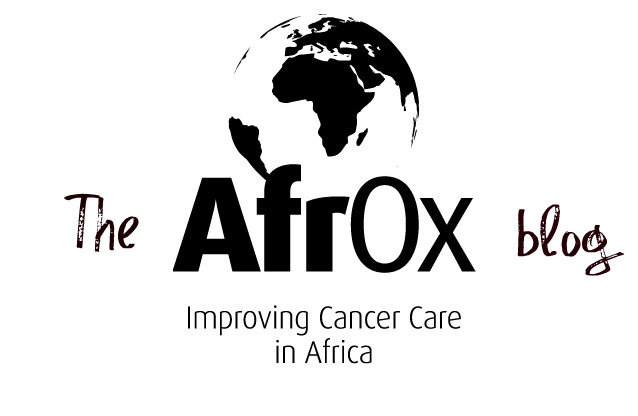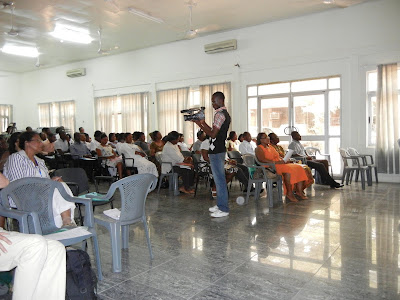In April, an AfrOx team led an oncology training workshop in Ghana along with a team from World Child Cancer. Meaghann Shaw Weaver shares a special moment with us....
April started out with a full agenda at the oncology training workshop in Ghana. These two days of focused sessions offered training in oncology interventions and supportive care.
Much more than projects and pursuits, the real "fullness" of joy in Ghana comes from the strength of partnerships in working together for patient care. When removing the bandage from a biopsy site yesterday, a young patient's mum quietly told me "we must be brave together" and held my hand while I removed the tape. This is a mum who sits in a plastic chair next to her son's bed night after night, vigilant and hopeful in her bravery. This same mum insisted on sharing jollof rice with me today when she noticed I'd been at the hospital through lunch.
No matter that the day's serving of jollof rice was heaping and the fufu (pounded yam) expanded in my stomach, my heart still felt fuller than my stretched stomach at the day's close in Ghana. My heart feels full with admiration for the courage of patients, the perseverance of families, and the care offered by colleagues and mentors in Ghana. Ghana reveals the full potential of the human spirit when perseverance and partnership combine.
April started out with a full agenda at the oncology training workshop in Ghana. These two days of focused sessions offered training in oncology interventions and supportive care.
Much more than projects and pursuits, the real "fullness" of joy in Ghana comes from the strength of partnerships in working together for patient care. When removing the bandage from a biopsy site yesterday, a young patient's mum quietly told me "we must be brave together" and held my hand while I removed the tape. This is a mum who sits in a plastic chair next to her son's bed night after night, vigilant and hopeful in her bravery. This same mum insisted on sharing jollof rice with me today when she noticed I'd been at the hospital through lunch.
No matter that the day's serving of jollof rice was heaping and the fufu (pounded yam) expanded in my stomach, my heart still felt fuller than my stretched stomach at the day's close in Ghana. My heart feels full with admiration for the courage of patients, the perseverance of families, and the care offered by colleagues and mentors in Ghana. Ghana reveals the full potential of the human spirit when perseverance and partnership combine.






